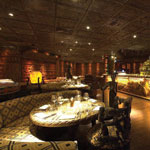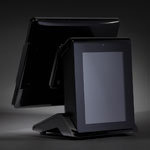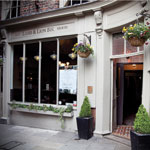Technology – net gains
With the number of internet bookings on the rise, it pays to drive diners to your website. Ross Bentley examines some systems available and explains how they can help control reservations
Despite the ubiquity of the web, according to research conducted by Smart Diner, an online reservation systems supplier based in Leeds, as little as 5% of customers book their tables over the internet - the vast majority preferring still to walk-in or make a phone call.
However, this figure can vary enormously depending on the location of the restaurant. According to Adam Purslow, group IT manager at the Individual Restaurant Company, there is a discernible North-South divide when it comes to online bookings, with more guests in the South of England looking to the web for reservations. At the optimum end of the scale, Purslow reports that up to 50% of diners who eat at the Piccolino eatery on Exchange Square in London's City, book online because the vast majority are attending business meals.
"Many are booked in by PAs and secretaries who want minimal interaction with the restaurant," he adds.
Whatever the vicinity, most industry commentators expect the number of diners booking online to rise in the future. This trend, they say, means operators should analyse their online strategy today to ensure it can grow with them moving forward.
At QuadraNet Systems, which provides the reservation system for the Individual Restaurant Company, service director Mike Edworthy encourages restaurant chains to not rely solely on third-party booking sites, such as Taste Card, but to drive bookers to their own websites. This, he says, gives operators greater control over customer data and will enable them to offer better customer service.
He advises chains to implement one central database across all sites, so that information about regular diners, such as their table preferences and favourite food and wine, is available to staff whatever restaurant that guest enters.
Attracting customers to a restaurant's own website also allows operators to control the level of discounts they offer and the times when they are available, says Smart Diner's chairman Stanley Wootliff (see page 36). The company has devised a booking grid that can be integrated with websites to offer diners a view of all seating times during the week and the particular times, such as traditional non-peak hours, when a discount is included.
Technology also has a role to play at peak hours, when busy restaurant staff may find themselves juggling both walk-in customers and those who have reserved. At NFS Hospitality, sales manager Nick Skudder says table management software can be applied to ensure table use is optimised - matching party sizes to tables, ensuring bookings are honoured, and to give customers accurate waiting times. The company's Aloha software is bringing benefits to a number of busy West End restaurants where staff use its colour-coded system to see at-a-glance how long before a table is free. The systems can also be integrated with a paging system to alert guests, maybe having a drink at the bar before their meal, that their table is ready.
Shaka Zulu maximises table turnover
The solution was designed by NFS Hospitality, based on its Aloha EPoS and restaurant management system, and incorporates Open Table reservation software.
It combines reservations with a live table management package so that restaurant staff can not only see which tables are reserved but can also estimate when occupied tables will become free. This allows them to accept new reservations and accommodate walk-in guests.
Using hand-held terminals, bar and waiting staff update the Aloha system when each drink order and food course is called away and this information is automatically sent to the reservation and table management systems and displayed at the receptionist's station.
Capturing reservations data
Livebookings targets on-the-go customers Catering for the growing number of restaurant bookings made via mobile devices, Livebookings has introduced new functionality that allows restaurants to relay table availability in real-time to mobile and internet users, and stay open to last-minute covers.
Using these online and mobile reservation and marketing tools, the company says restaurants will be able to maximise the opportunities from the rise of customers with smartphones.
Reservation system tips
â- Have one customer database across a group, so staff are aware of diner's history and preferences at whichever restaurant they place a reservation.
â- Don't get drawn into a discount war - think strategically about how much you can offer and at what times.
Sigma scans booking codes
Tim Van den Branden, director of Sigma, believes venues miss out on valuable efficiency and customer experience scores if they don't close the loop between their online and in-house reservation systems. "Customers who take the trouble to print or download booking codes want an easy way to use them to activate their reservations," he says.
Lamb and Lion spreads its bookings
Known for its unpretentious food and atmosphere, the restaurant pays £1 per diner booked through the system. According to general manager Brian Furey, since implementing it he has received a significant flow of internet bookings - not just at popular times but across all time slots.
He adds: "Having put the Smart Diner booking grid on to our own website, it has been interesting to see how many bookings are made during the night and early morning, times when the phone would not have been manned.
"It is amazing to see how a small discount can deliver diners at six o'clock on a Wednesday evening."
The Individual Restaurant Company shares data
The company chose technology from QuadraNet Systems to share customer booking data across all sites to enhance customer service, according to group IT manager Adam Purslow.
He says: "Sharing data in this way means staff are aware of a diner's preferences from other restaurants in the group as soon as they walk in, regardless of the location.
"The system allows us to go all out to wow customers. If they love a particular dish or usually prefer to sit upstairs, for example, we can offer that straight away without them having to ask, whether they are in, for example, one of our restaurants in central Manchester or Exchange Square site in the City of London."
Opinion: Operators are being too generous with discounts
Third-party bookings sites, as well as restaurant own websites, are overflowing with vouchers, "groupons" and cut-price meal offers of up to 50% off. Restaurants are being drawn into a price war to attract diners - and diners are being bombarded with a bewildering choice of offers.
But I can't help thinking these restaurants have missed the point and that instead they should be holding their nerve and considering some kind of online dynamic pricing solution that allows them to truly understand the real elasticity of their prices.
Rather than drastically slashing prices to attract diners at non-peak times, our research shows that 90% of people say that they would consider moving their meal reservation from the 7pm to 8pm slot to the 6pm to 7pm slot if they are offered a discount of as little as 10%. There's also the issue that while many restaurants don't allow diners to redeem discount vouchers on the busy Friday and Saturday nights, inevitably diners will turn up at peak dining times on other days - or the right day, wrong time. Times when restaurants should be maximising their tables with regulars and walk-ins.
By understanding and incentivising their diners, restaurants should be able to spread their diners across a wider time span, filling quieter times and taking pressure off the kitchen at busier times - a move that will also improve the service, diners' biggest area of complaint.












